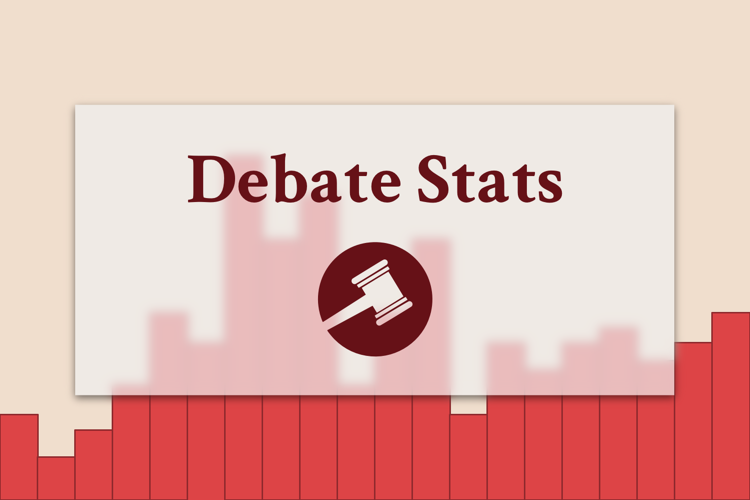LD Metagame at Emory

Intro
If you’re going to Harvard or Berkeley next weekend and expect to clear, you’re probably going to spend a good amount of time figuring out what cases you’re going to hit. The case wiki has made this process a lot easier, but you still need to know how to divide your labor. To aid in this process, I’ve compiled some information on what debaters who cleared at The 61st Barkley Forum, aka Emory, run on the aff. Emory is a good sample because there were debaters in elims from most regions of the country, and every debater who bid at Emory already had at least one bid. There were many elite debaters at Emory who will also be at Harvard/Berkeley. Studying their strategies should help you find out what’s successful right now and what you need to block out leading up to these octas bids.
To divide 32 aff wikis into useful categories, I thought about doing it by topic area, so IPV affs would be one thing, gun culture/Giroux affs would be another, but that doesn’t seem too helpful because it fragments the meta very specifically, and a lot of teams have general strategies for dealing with a much larger group of affs. For instance, they might read the 50 States CP and a politics DA against IPV, cartels, suicides, and college campuses affs, so it seems useful to group those. There might be a better way than what I’ve done here, but this is my categorization:
Consequentialisms (Util. or Oppression frameworks): This group contains cartels, college campuses, generic oppression (Gahman), gun culture/militarism, IPV, neoliberalism advantages, patriarchy advantages, racism, soft power, suicide, and gun violence against blacks. These advantages can impact either to a traditional utilitarian framework or a Curry/Mills/Winter and Leighton oppression framework. Some teams only do one of the two and some do both.
All-in Kritiks: This group contains ableism, Baudrillard, capitalism, Colt .45/Native history, discourse/ideology of gun ownership, hauntology/Derrida, hypermasculinity, mestiza consciousness/militiamen, psychoanalysis, queer manifesto, racial psychoanalysis, and Wilderson. These affs are distinguishable from the race/neoliberalism affs in the first category because those were each one advantage among many, but these affs have a singular focus.
Moral Philosophy / Traditional / Tricks: This group contains conditional logic, deliberation, due process, environmentalism, equality, no private ownership burdens analysis, quantum mechanics/MWI burden, social practices, and virtue ethics. While I recognize that moral philosophy and tricks can be very distinct, there is one type of team running both, they’re often read together, and they’re such small parts of the meta, separating them wouldn’t be all that helpful anyway.
Method
I took 31 debaters from Emory doubles who either disclose on the caselist wiki or gave me their cites. I then categorized all their different aff arguments into the three categories above. To simplify things, I assumed that each debater reads all their affs with equal frequency, and I’m counting each part of an aff, e.g. one advantage, as a full aff. I could calculate all the different permutations of the seven advantages that Strake SM has, for instance, but that would result in dozens of possible affs, which doesn’t really help the prep process. But this does mean that the frequency of advantages from debaters with multiple advantages is under-represented in my data set.
There’s probably a better way to do all this, but I’m not a math guru. You can download my spreadsheet here if you want to see the raw data and how I counted it all up. If you don’t want to do that, just take a look at these pretty graphs:
2017 Update: Whoops! I didn’t realize the graph above was giving percentages out of the percentage of consequentialist affs at Emory, not out of 100%, which the two below are. Hope that’s not too confusing.


Conclusion
Hopefully, this can help you prep for next weekend’s big tournaments! I could have gone a step further and recommended certain affs based on how well they did at Emory, but the data we have is really limited. We don’t know if a debater had two affs if one was read in prelims and one in elims, or one read at CPS or Blake, but not Emory. Someone who got really far might have negated several times in elims, so the results don’t speak to the strength of his or her aff. Or maybe a really good debater is running a really poorly constructed affirmative but manages to win a lot of debates anyway!
So it’s really tough to do this well without a bigger sample size and more complete data. Nonetheless, I hope I’ve helped. If you like this sort of analysis or have suggestions for how to do it in the future, please comment below!
And just for the fun of it, let’s run a poll on which of the most popular affs you think is best on this topic. Anyone can vote:
[poll id=”5″]



